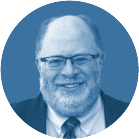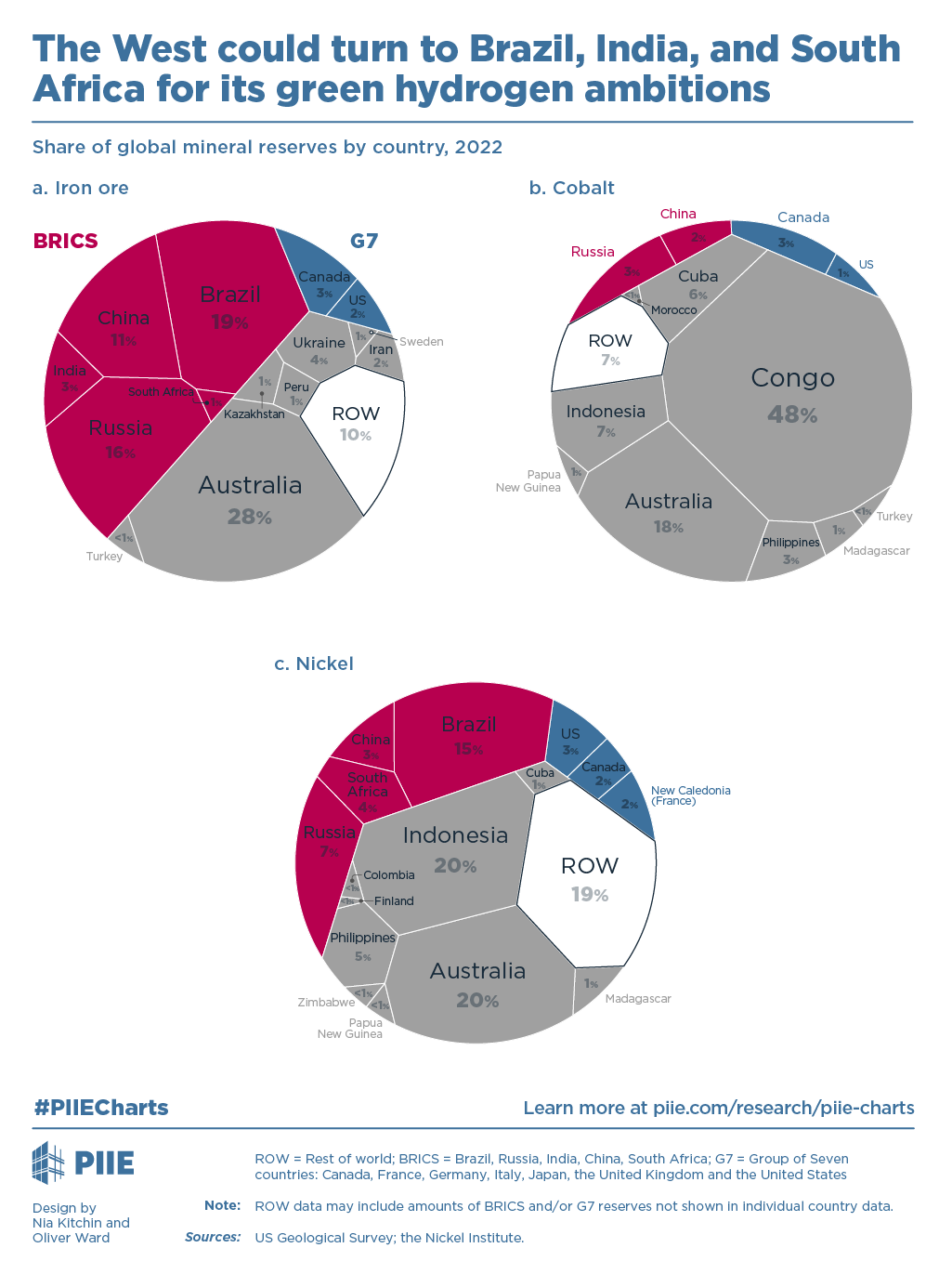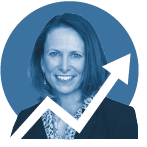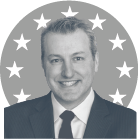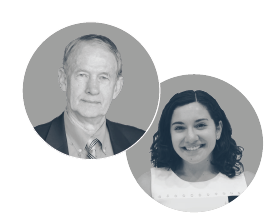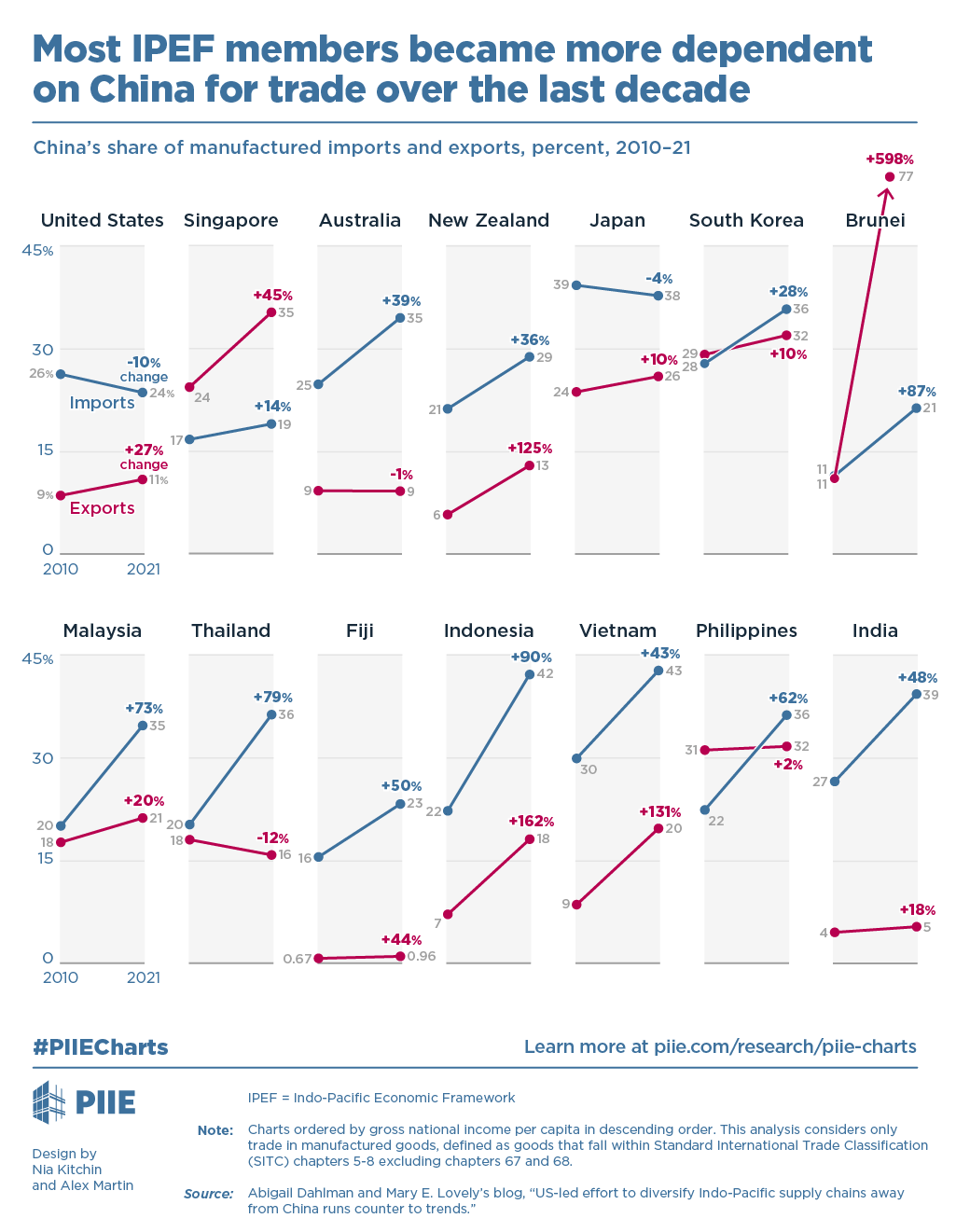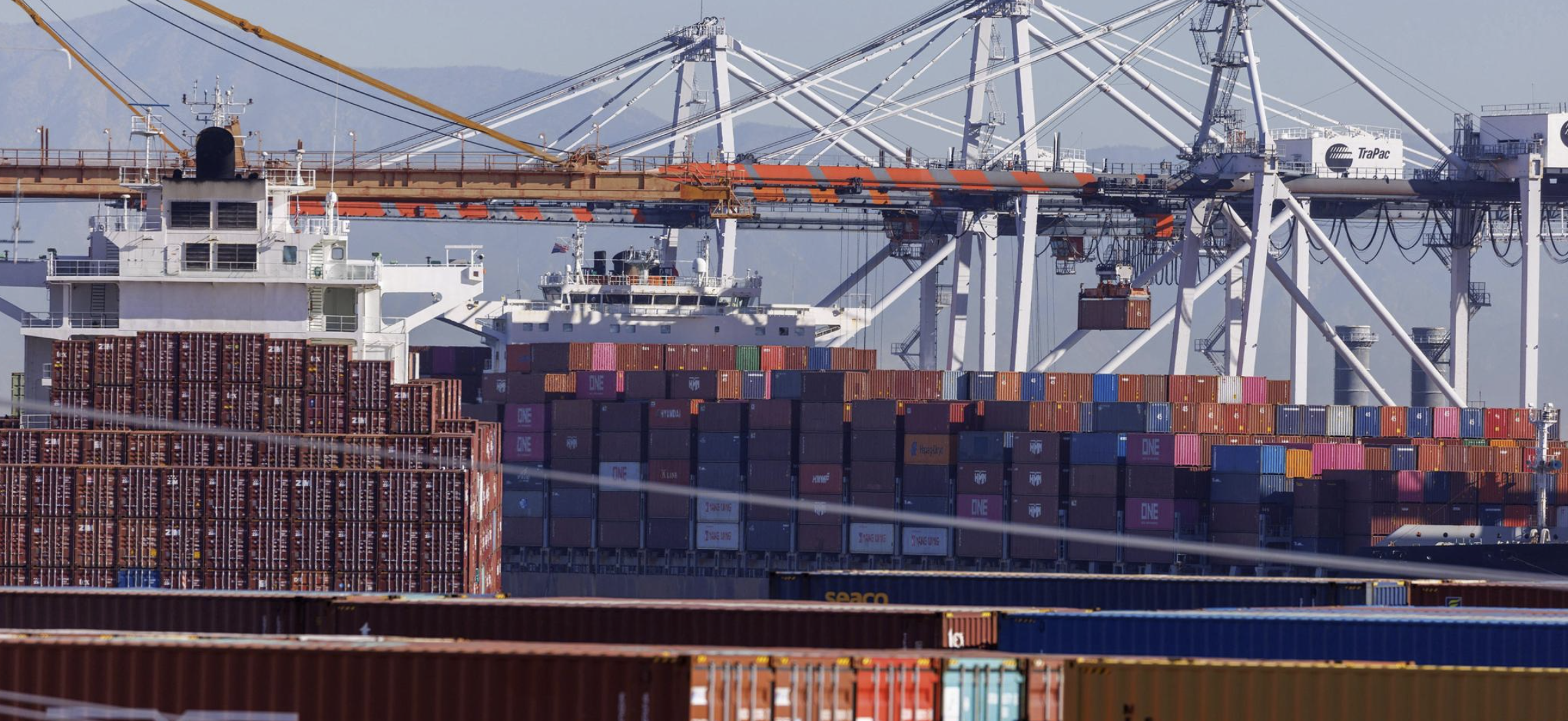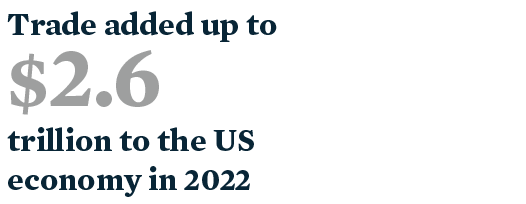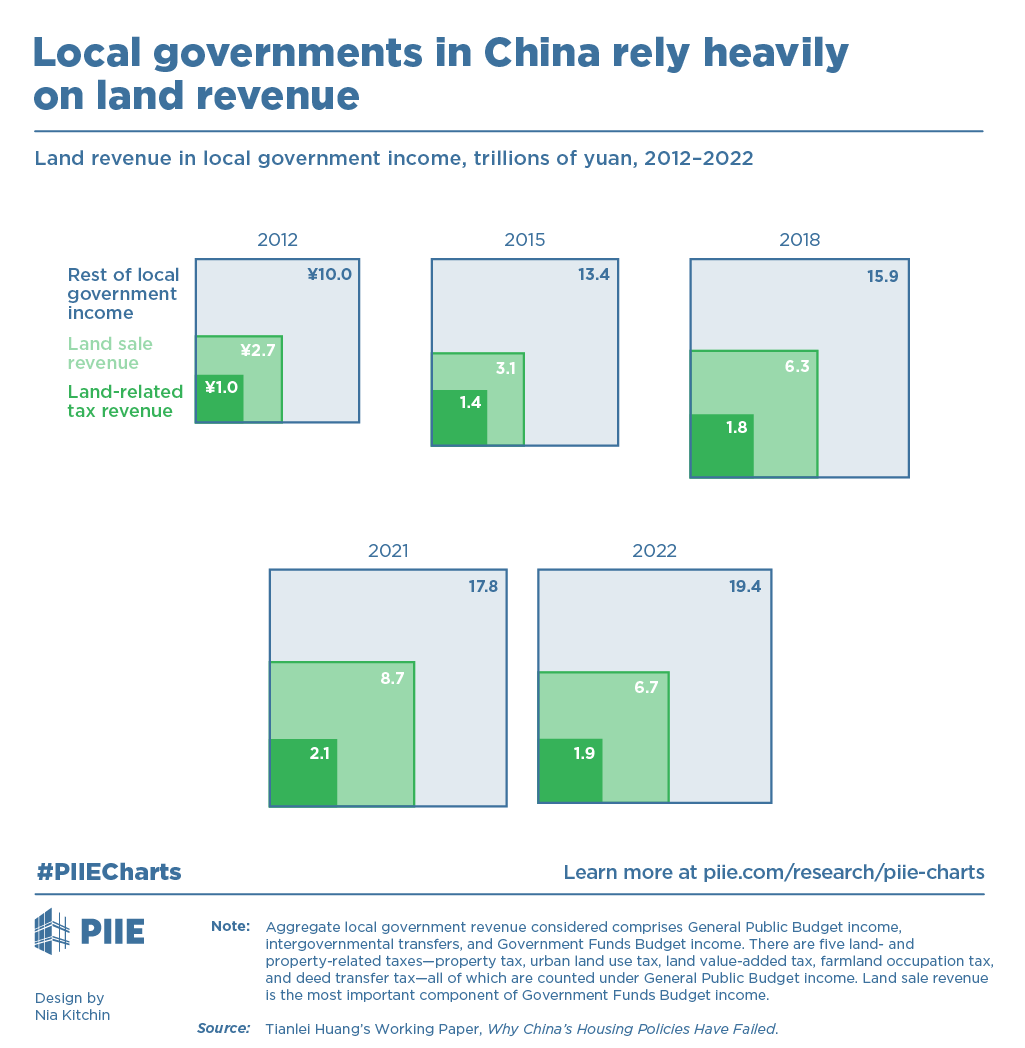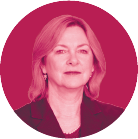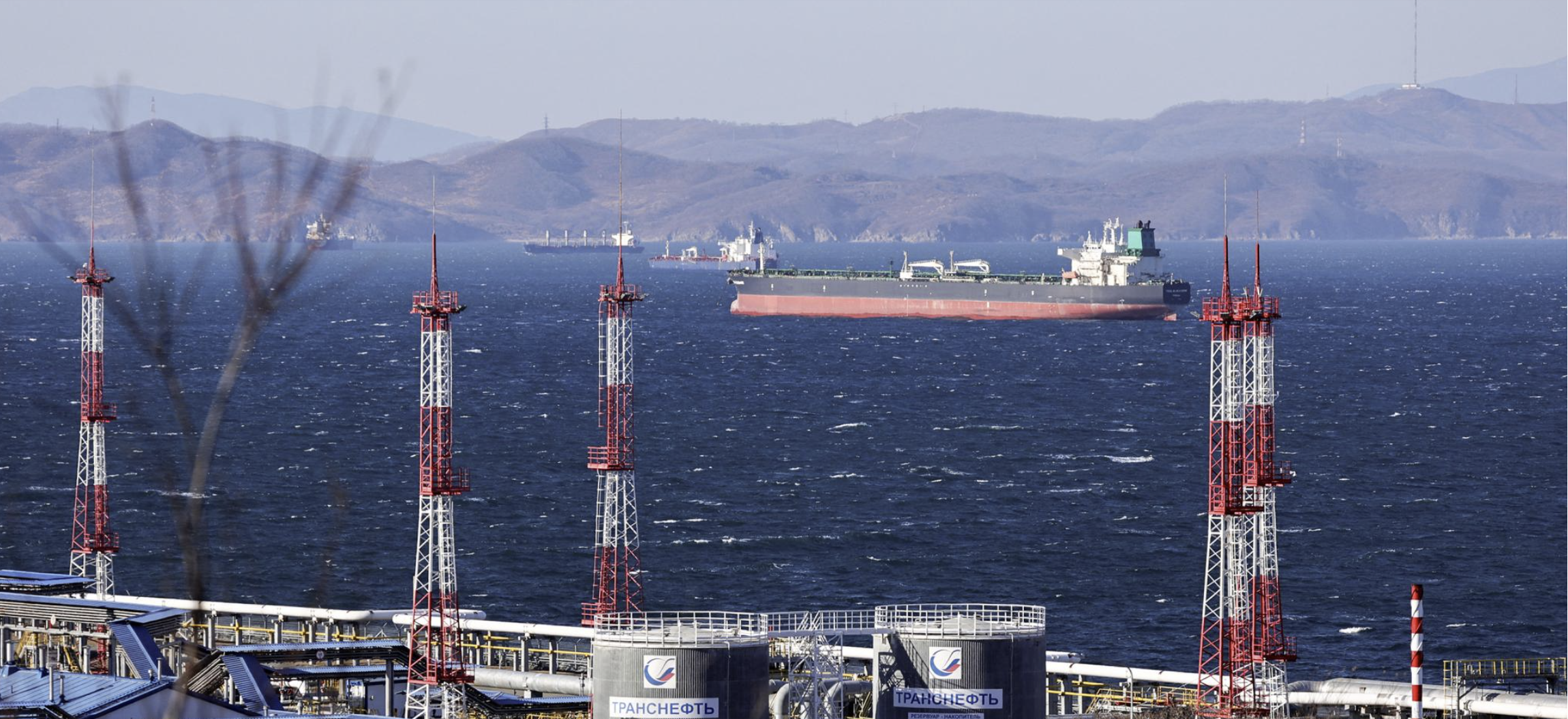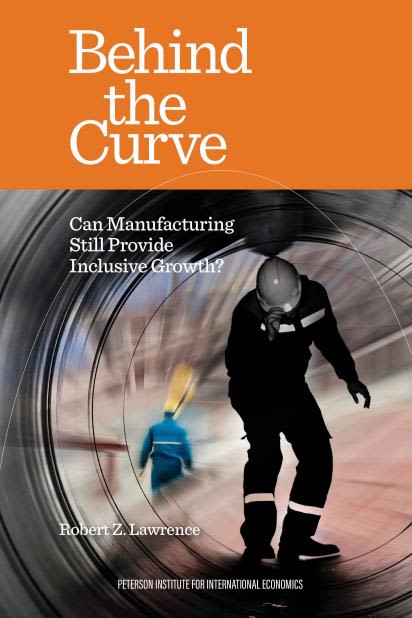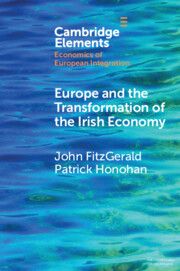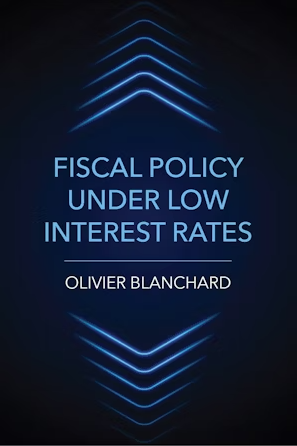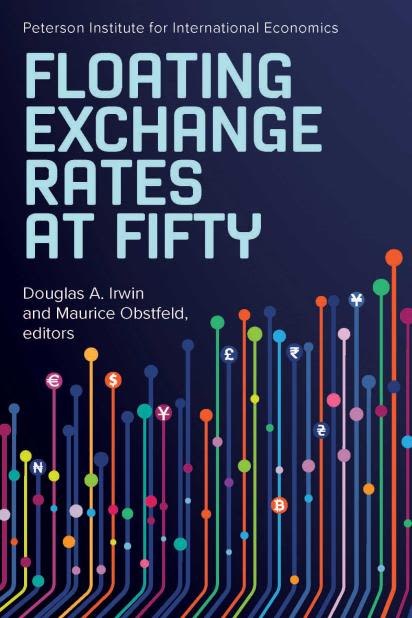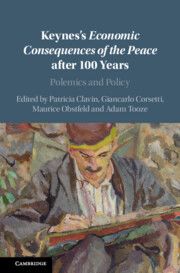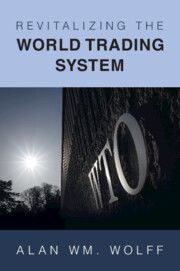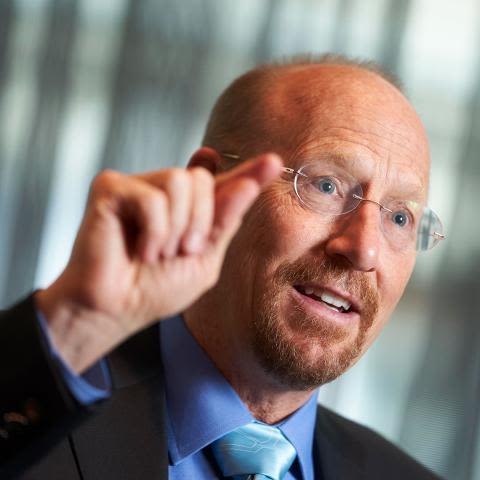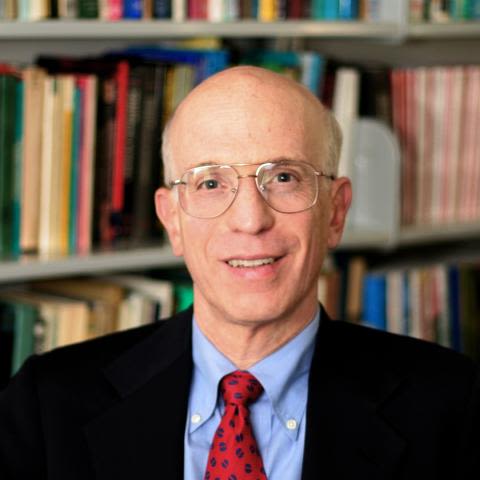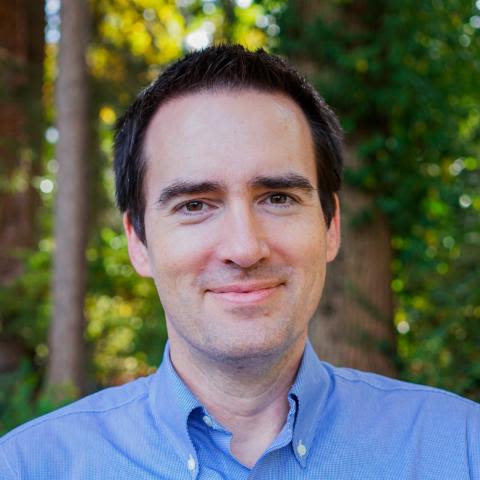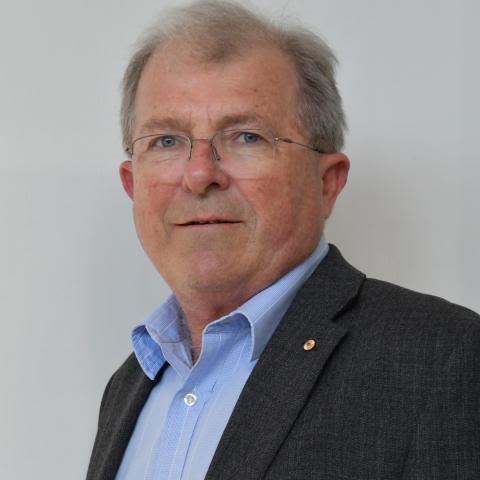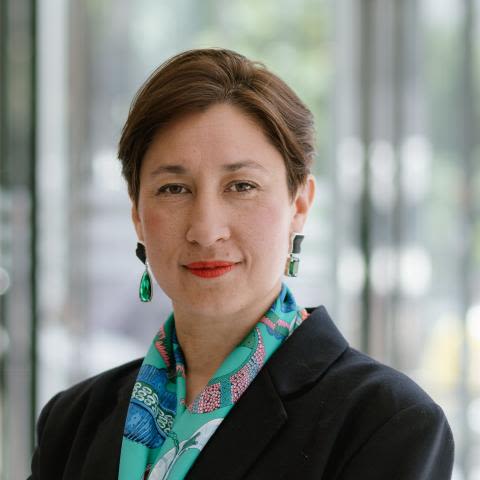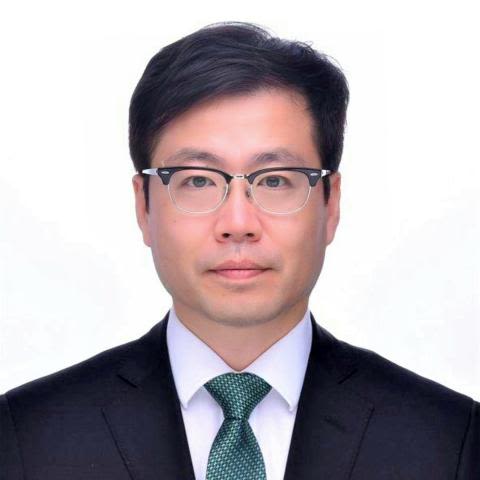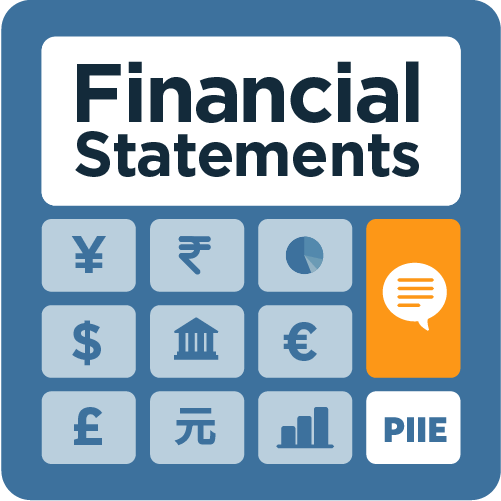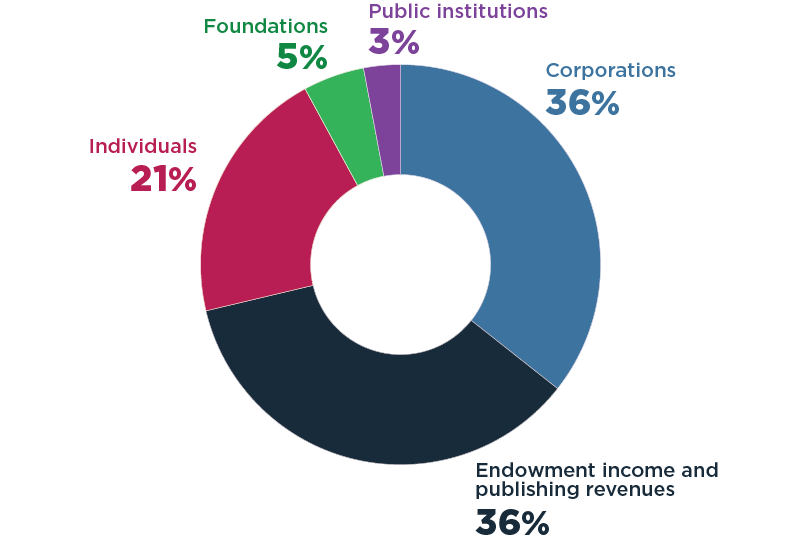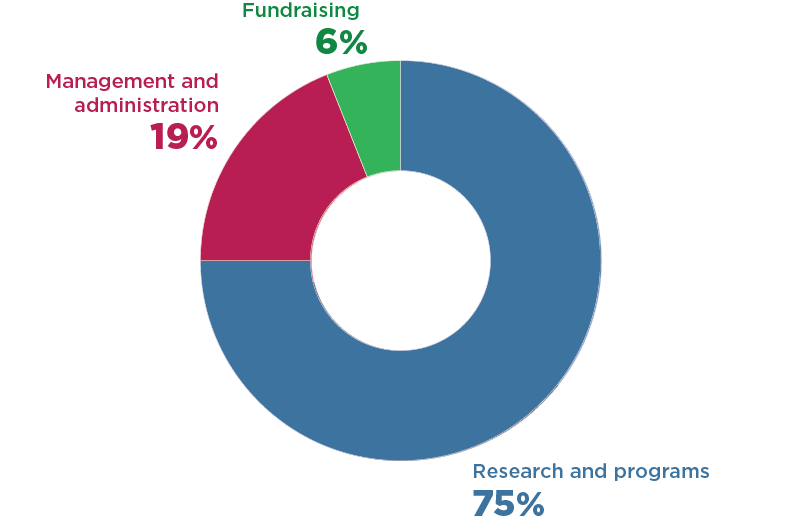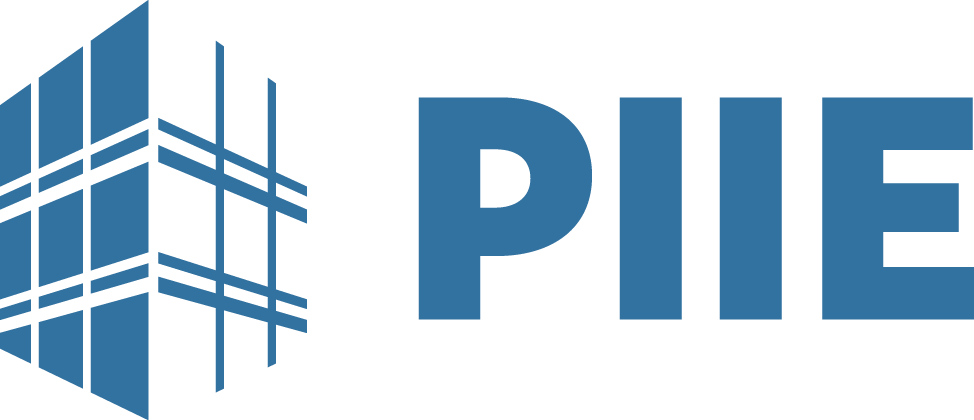Annual Report
2023

Leading research on the global economy
The Peterson Institute for International Economics (PIIE) is dedicated to strengthening prosperity and human welfare in the global economy through expert analysis and practical policy solutions.
Founded in 1981 and led since 2013 by President Adam S. Posen, the Institute anticipates emerging issues and provides rigorous, evidence-based policy recommendations with a team of the world’s leading economists and policy experts. It creates freely available content in a variety of accessible formats to inform and shape public debate, reaching an audience that includes government officials and legislators, business and NGO leaders, international and research organizations, universities, and the media.
“More than ever, we need an institution like Peterson. We need a lively intellectual debate and pragmatic solutions for the key issues facing the global economy.”
“[T]he Peterson Institute for International Economics is, I think, the most influential economic think tank in Washington, DC.”
Subscribe to the PIIE Insider Weekly Newsletter
Letter from the president
We are in an era of growing conflict internationally and domestically. Perceptions of relative economic decline are driving domestic divisions and geopolitical tensions around the world, while the reality is one of surprising economic resilience and recovery from the COVID pandemic and inflation. Strategic competition increasingly has an economic component and incurs economic blowback. Freedoms to trade, invest, migrate, and exchange technology across borders are increasingly constrained just when demographics, fiscal pressures, and climate change require greater international cooperation. Pragmatic, constructive, evidence-based policies are needed now more than ever.
In this year of critical elections in the United States and around the democratic world, the staff of the Peterson Institute for International Economics (PIIE) will continue to provide nonpartisan research-grounded analysis of international economics while correcting misinformation and confusion about trade, finance, and many other aspects of globalization. We do not wish to be the only voice doing so, but we will keep speaking the truth, alone at times if we must, because peace and human welfare depend on getting policies right. We will try to prevent the mismanagement and corrosion of globalization, and, where we cannot, we will point out their costs. We will make plans for how to maintain the beneficial international economic integration, which still exists (and in some areas still expands), and for how to rebuild cooperation when the need for pragmatic solutions becomes widely recognized again.
In this spirit, I am proud to present the Peterson Institute’s annual review of our scholars’ work and our public outreach addressing the policy issues confronting the United States, the G20 economies, and their interactions with the world at large. Through thought leadership, public education, direct advice to policymakers in global capitals and international institutions, and convening of high-level leaders, PIIE has exerted positive influence on many of the most important issues in 2023.
Critical policy issues where the Peterson Institute made a difference to public debate in 2023 included:
- Understanding the limitations and costs of industrial policies in an interdependent world, with deep focus on the realities of supply chains in semiconductors and green technology.
- Debating the future of long-term interest rates, their drivers, and implications to enormous viewership and spirited discussion around the world.
- Creating influential fresh perspectives on the future of the Chinese economy in tandem with the deep detailed analysis of developments in public and private finance there.
- Simultaneously conducting prescient real-time analysis of inflation and monetary policy while undertaking a rigorous post-mortem of the recent rise and decline of inflation.
- Assessing for Congressional and parliamentary audiences the effectiveness of new economic sanctions and export controls and recommending improvements.
- Bringing sought-after international perspectives to the US debt ceiling debate, Brexit implementation, EU fiscal rules, and ongoing plurilateral trade agreements.
- Drawing frank lessons from the fifty years of the exchange rate non-system since the collapse of Bretton Woods, admitting surprises and identifying lasting vulnerabilities.
- Influencing the transition from climate goals to practical policy measures with respect to carbon border adjustments, macroeconomic planning, and financial tradeoffs.
Looking forward to the rest of 2024, we have underway a powerful ongoing agenda of research, convening, and public outreach, continuing on these themes but also addressing:
- The impact of further barriers to trade and investment proposed by the presumptive US presidential nominees on the American and world economies.
- The costs of greater decoupling between China and the United States, including through channels of retaliation, economic diversion, and productivity.
- The declining role of manufacturing in providing inclusive growth either in the United States or in the developing world amid an industrial policy arms race.
- The wisest sequencing of climate change policies given the political economy of structural adjustment between and within countries.
- The policies that could stabilize Latin American growth sustainably, given the turmoil in Argentina and beyond, the pending review of the US-Mexico-Canada Agreement, and China-US competition for resources in the region.
- The urgent need to be better prepared for the next pandemic, by expanding our work in this field, including on trade rules and supply chains for pharmaceuticals and other medical goods.
- The importance of freeing the world trading system from deadlock while exploring the opportunities of plurilateral trade agreements.
- The next steps market-oriented third countries can take to navigate a world economy, or even maintain growth-friendly openness, amid pressures from the China-US rivalry.
As always, I wish to express our gratitude to our stakeholders and supporters—including philanthropic individuals, private-sector corporations, foundations, and government institutions—without whom we simply could not do our independent policy-relevant evidence-based work. Your support allows us to speak freely and go where the research takes us, making us not only able but proudly willing to stick to our convictions. We hope to broaden support for our mission to maintain and improve global economic integration to lasting human benefit.
Sincerely,
Adam S. Posen
President | Peterson Institute for International Economics






Key Areas of Impact

Assessing the transition to green economies
Electric vehicles: Chad P. Bown’s groundbreaking early analysis of the European Union’s response to EV tax credits in the Inflation Reduction Act (IRA) was the most viewed publication of the year and was called “compulsory reading” by the European Commission Directorate General for Trade. Bown also wrote about South Korea’s response, and he was quoted in NPR, Politico, Financial Times, and more. Cullen S. Hendrix wrote that the United States and its trading partners do not produce enough critical minerals required in EVs and batteries to make the tax incentives work. Gary Clyde Hufbauer argued that EVs could fragment world trade as countries in the Global South welcome less expensive Chinese EVs while advanced economies are likely to raise barriers to limit them.
Critical minerals: Cullen S. Hendrix was a vocal proponent of adding copper to the US critical minerals list, speaking with industry and US Geological Survey staff following social upheavals in copper-producing Peru in December 2022. The United States added copper to the list in July 2023. In the fourth most viewed piece of 2023, Hendrix pointed out environmental concerns from India’s discovery of lithium and warned against a purchasers club to diversify critical mineral supply chains. Monica de Bolle explained that deeper ties with Brazil, India, and South Africa could offer more green hydrogen alternatives to western countries.
Climate action for France: Jean Pisani-Ferry cowrote a report to the French prime minister to shape the agenda for French climate transition policy. It received extensive media coverage from the Financial Times and the Wall Street Journal.
Macroeconomic implications: Jean Pisani-Ferry and Adam S. Posen organized a major PIIE conference on the economic implications of climate action, with speakers from the IMF, World Bank, and OECD. The event drew over 1,600 virtual and in-person attendees from government, academia, and the general public.
CBAMs: Kimberly Clausing analyzed the potential of carbon border adjustment mechanisms and climate clubs to encourage a global approach to climate mitigation, but at the risk of igniting more trade disputes. Her work was cited by the US Congressional Joint Economic Committee and the European Commission.
Trade and climate: The diverse climate policies of the world’s three largest economies are raising concerns over potential trade conflicts. Chad P. Bown and Kimberly Clausing detailed these tensions and recommended guidelines on subsidies, carbon border adjustments, and export curbs to better tackle the climate emergency in a Working Paper shared by the World Economic Forum and cited by the Financial Times. Cecilia Malmström worked with the networking group for female trade experts, TradeExperettes, on a report for the WTO Public Forum to reboot negotiations on environmental goods and services.
El Niño: The El Niño climate pattern might bring some relief to drought-stricken countries in Africa and South America after La Niña, but it also brings extreme rain and flooding, explains Cullen S. Hendrix in an op-ed for Foreign Policy.
Energy transition in Europe: Jacob Funk Kirkegaard noted that although the European Union has insulated itself from Russia’s weaponization of natural gas, it still needs to step up its non-carbon-emitting power production. He analyzed Russia's invasion of Ukraine as accelerating the European Union’s decarbonization plans in a Policy Brief and PIIE Chart.
European Commission Directorate General for Trade praised Chad P. Bown’s analysis.
PIIE Chart by Monica de Bolle, “The West could turn to Brazil, India, and South Africa for its green hydrogen ambitions”
PIIE Chart by Monica de Bolle, “The West could turn to Brazil, India, and South Africa for its green hydrogen ambitions”
Foreign Policy op-ed by Cullen S. Hendrix
Providing timely analysis on US inflation, debt, and more
Adam S. Posen went on CNN to discuss the US spring banking turmoil.
“Simple reforms to our business tax system can improve the system [...] generating more revenue, reducing offshoring incentives, enhancing competition and economic efficiency, and resulting in a fairer tax system.”
Financial Times op-ed by Anna Gelpern, Adam Levitin and Stephen Lubben
PIIE’s forecast was cited in the Wall Street Journal alongside the World Bank and IMF forecasts.
Inflation: Olivier Blanchard cowrote a seminal paper with former Federal Reserve chair Ben Bernanke concluding that pandemic-era inflation was driven by varied factors, including supply and commodity shocks. The paper was widely cited in the New York Times, Wall Street Journal, Reuters, and more. Joseph Gagnon was on David Beckworth’s Macro Musings podcast to discuss US inflation’s past and future and was named by New York Times columnist Paul Krugman one of the economists “who got it mostly right” in predicting inflation. Jason Furman regularly wrote op-eds for the Wall Street Journal and Project Syndicate on inflation targets and why US inflation was falling short. Alan S. Blinder, a visiting senior fellow for the year, wrote a paper on central bank “soft landings” and numerous columns for the Wall Street Journal.
Debt ceiling: As lawmakers threatened to default on US debt, PIIE engaged in a full-court press to advocate raising the debt ceiling. In an op-ed for CNN cited by the White House, Mary E. Lovely and Katheryn (Kadee) Russ argued that a US debt default induced by Congress’s failure to raise the debt ceiling undermines confidence in US bonds and weakens national security. Adam S. Posen and PIIE scholars briefed White House and Congressional staff and were cited by the Washington Post, New York Times, NPR, CNN, and more. In one of the most viewed pieces of the year, PIIE research analyst Lucas Rengifo-Keller explained the differences between breaching the debt ceiling and a government shutdown. Anna Gelpern wrote op-eds arguing the debt limit is unenforceable (Financial Times) and that Congress’s failure undercuts its own constitutional power (The American Prospect).
Taxes: Kimberly Clausing, former deputy assistant secretary for tax analysis in the US Department of the Treasury, testified in April at a US Senate Committee on the Budget hearing on tax dodging by big corporations and wrote Washington Post op-eds on debunking global minimum tax myths and how to use tax policy to tame the federal budget deficit.
Interest rates: Updating projections from early 2023, Olivier Blanchard called on advanced economies to reduce primary deficits over time to zero to help stabilize public debt ratios in light of high long-term interest rates. The two blog posts were among the most read PIIE pieces of the year. At a PIIE-hosted event that drew nearly 2,500 live viewers, Blanchard and PIIE board member Lawrence H. Summers discussed what neutral rates would be after inflation subsides.
Forecasts: PIIE’s flagship semiannual Global Economic Prospects forecasts, led by Karen Dynan, have proved more accurate than consensus forecasts in recent years; for example, correctly predicting inflation would last longer than many expected. In fall 2023, Dynan pivoted and went against many forecasters, accurately predicting that the United States would avoid recession despite the Federal Reserve raising interest rates. PIIE’s forecasts were widely cited, including in the Wall Street Journal, The Guardian, and Bloomberg.
The Fed at Jackson Hole: Journalists continue seeking PIIE economists for analysis on the Federal Reserve’s annual Jackson Hole Economic Symposium. Bloomberg TV opened its coverage on the day of Chair Jerome Powell’s speech with an interview with Adam S. Posen, who also spoke with NPR, Politico, MarketWatch, and international news organizations. Posen held a press briefing attended by journalists from the Washington Post, Financial Times, Reuters, Bloomberg, and more. David Wilcox responded to Powell's message that the Fed would do what it takes to get inflation down to 2 percent.
Junk fees: Gary Clyde Hufbauer and Megan Hogan’s blog on how eliminating surprise fees on consumers, known as “junk fees,” could raise prices was referenced by Rep. Stephen Lynch (D-MA) at a US House Financial Services Committee hearing.
Tracking the evolving world of trade, industrial policy, and supply chains
US-China decoupling: Chad P. Bown continued his pivotal role assessing the US-China trade war, writing PIIE’s top blog post of the year on China’s slow decoupling from US exports and a related PIIE Chart on US imports from China reaching record levels on some but not all products. His work was cited by the White House and Congress, as well as prominent news outlets such as the Washington Post, Financial Times, and Politico. Caroline Freund’s research showing supply chains remain entwined with China was cited by the New York Times, Economist, Washington Post, and more. Luca David Opromolla outlined the risks of the two countries restricting more trade and investment.
US industrial policy: Adam S. Posen has become a prominent voice raising questions about US industrial policy. He wrote Foreign Policy’s second most read story of 2023 warning that the Biden-Trump strategy of protecting domestic manufacturing and discriminating against foreign production is not just wasteful, it is self-defeating. He was cited by the Financial Times, Bloomberg, Axios, and Politico, spoke on several podcasts including NPR’s The Indicator, and was mentioned by prominent commentators across social media. He also wrote an op-ed on “The True Costs of Subsidies War with China” for Handelsblatt.
Global industrial policy: Mari Pangestu, coeditor of East Asia Forum, argued that governments worldwide adopting green industrial policy creates challenges for developing countries. In an op-ed for the Financial Times, Pinelopi Koujianou Goldberg asserted that industrial policy should embrace targeted and internationally coordinated public investment. Chad P. Bown examined how the World Trade Organization can assess industrial policies among trading partners. Reinhilde Veugelers and Nicolas Véron compared the US Inflation Reduction Act with preexisting efforts of European counterparts to build EU green industrial policy.
Trade Talks: The hit Trade Talks podcast, cofounded in 2017 and hosted by Chad P. Bown, reached 200 episodes, with 26 released in 2023. The show, which regularly brought in over 26,000 downloads per episode and fans across social media, is now on hiatus as Bown is on leave for public service as chief economist for the US Department of State.
Investment and export restrictions: Martin Chorzempa became the go-to expert on export controls on advanced technology and investment to China, cited by the Financial Times, NPR’s Marketplace, Bloomberg, CNBC, and more. He examined the benefits and costs to Korea of US chip controls on China. He also wrote the first and most comprehensive article on the Biden administration’s proposal to restrict outbound investment to China.
World trading system: Alan Wm. Wolff, Robert Z. Lawrence, and Gary Clyde Hufbauer challenged the argument that trade agreements have been bad for America in one of PIIE’s most viewed publications of the year. The World Knowledge Forum in Seoul featured sessions with Marcus Noland, Jeffrey J. Schott, and Nicolas Véron.
IPEF: The Biden administration faces challenges in getting members of the recently formed Indo-Pacific Economic Framework (IPEF) to diversify their supply chains away from China, as analysis by Abigail Dahlman and Mary E. Lovely revealed. The study was cited by the Financial Times and in an Associated Press story picked up by news organizations around the world. Lovely wrote a related op-ed for Foreign Affairs. Jeffrey J. Schott and Megan Hogan analyzed the role of IPEF in reinforcing Korea’s benefits from its other economic integration pacts, while erecting barriers with nonmember countries like China. Yeo Han-koo spoke at several events about IPEF and wrote that a new era of partnership between the United States, Japan, and Korea could eventually expand the Comprehensive and Progressive Agreement for Trans-Pacific Partnership (CPTPP) and IPEF supply chain resilience.
Globalization: Gary Clyde Hufbauer and Megan Hogan, updating previous estimates, found that gains from trade since 1950, facilitated by transportation and communications improvements, added up to $2.6 trillion to the US economy in 2022. Arvind Subramanian and coauthors asserted the era of hyperglobalization has come to an end but that globalization continues into an uncertain future, in a paper cited by the Financial Times. Subramanian and Alan S. Blinder discussed whether globalization is in retreat at a PIIE-Princeton University event that drew over 800 virtual and in-person attendees.
Currency: In a leading journal, Joseph E. Gagnon rebutted IMF First Deputy Managing Director Gita Gopinath’s claim about the dominant role of the US dollar in international trade pricing. Olivier Jeanne presented his paper on currency, trade wars, and global demand at the Bank of Canada Annual Economic Conference.
Free trade vs. protectionism: Gary Clyde Hufbauer criticized the US turn to protectionism and industrial policy in the University of Chicago Booth School of Business publication, ProMarket, which named it the most read piece of 2023.
BRICS: Arvind Subramanian argued in Project Syndicate that India should reconsider its membership in BRICS if the country wants to present itself as a key global player at the G20 Summit, as the collective shifts from economic dynamism towards "economic has-beens.”
Chad P. Bown testified in February before the European Parliament on the US Operation Warp Speed’s policies that allowed the United States to manufacture more COVID-19 vaccine doses earlier in the pandemic than other countries, providing insights as the European Union develops its own pandemic preparedness framework.
Adam S. Posen wrote Foreign Policy's second-most read piece of 2023.
PIIE Chart by Abigail Dahlman and Mary E. Lovely, “Most IPEF members became more dependent on China for trade over the last decade.”
PIIE Chart by Abigail Dahlman and Mary E. Lovely, “Most IPEF members became more dependent on China for trade over the last decade.”
Alan Wm. Wolff, Robert Z. Lawrence, and Gary Clyde Hufbauer wrote one of the most viewed publications of the year, "Have trade agreements been bad for America?"
Alan Wm. Wolff, Robert Z. Lawrence, and Gary Clyde Hufbauer wrote one of the most viewed publications of the year, "Have trade agreements been bad for America?"
Trade Talks reached 200 episodes.
The gains from trade were facilitated by transportation and communications improvements since 1950, according to Gary Clyde Hufbauer and Megan Hogan’s estimates.
The gains from trade were facilitated by transportation and communications improvements since 1950, according to Gary Clyde Hufbauer and Megan Hogan’s estimates.
Understanding China’s economy and analyzing US-China relations
Mary E. Lovely participated in a debate on US trade and investment restrictions on China before the US House Select Committee on the Chinese Communist Party in July.
Tianlei Huang reviewed the current housing crisis in China in a Working Paper that was cited in the Wall Street Journal. The PIIE Chart above highlights how local governments heavily rely on the real estate market for income.
Tianlei Huang reviewed the current housing crisis in China in a Working Paper that was cited in the Wall Street Journal. The PIIE Chart above highlights how local governments heavily rely on the real estate market for income.
China’s economic challenge: PIIE experts were in the spotlight for their analysis on the future of China’s economy following the country’s COVID-19 lockdowns. Adam S. Posen argued in Foreign Affairs that China's disappointing recovery is due to lingering fear and desire for liquidity, evident by the decline of consumption and investment after reopening. He received feature coverage in Axios, Bloomberg, CNN GPS, Washington Post, and more, and the follow up event with Foreign Affairs received over 165,000 YouTube views. In PIIE’s second most popular piece of 2023, Nicholas R. Lardy challenged the view that China’s economy is doomed to spiral downward. The two experts debated China's prospects at an event that has garnered the most views of any PIIE video of the year at 74,000.
Housing: China’s boom-and-bust housing market is partly driven by local governments’ heavy reliance on expanding the real estate market to provide a major source of income. In PIIE's second most viewed publication of the year, Tianlei Huang found that in 2022, the downturn in the housing market hurt local government finances and exposed a vulnerable system in need of reform.
Private sector trends: The semiannual PIIE China state vs. private company tracker by Tianlei Huang and Nicolas Véron is becoming a staple of coverage by journalists, including in the Wall Street Journal, Financial Times, and Barron’s. The tracker revealed further declines in the private sector in 2023 and was among PIIE’s top ten most viewed pieces. Yeling Tan investigated whether China’s state ownership of businesses limits the liberalizing effects of the WTO.
Our leading China Program
Mounting tensions between the United States and China reinforced PIIE’s determination to pursue realistic policy research and independent analysis of the issues in contention. PIIE scholars continued their productive dialogue with senior officials and leading economists in China on its economic development and global relationships.
Leading the program: Mary E. Lovely, leader of PIIE’s influential China Program, engaged with policymakers and analysts in China, Japan, South Korea, Singapore, and Taiwan, hosting five delegations of Chinese economists in Washington and briefing staff at the White House and US Departments of State and Treasury. She was regularly cited by journalists, appearing eight times on Bloomberg TV and other prominent outlets such as NPR’s Marketplace.
Bund Summit: Jeffrey J. Schott delivered the keynote address at the annual Bund Summit in Shanghai, a high-profile nongovernment financial conference organized by China Finance 40 Forum (CF40), a leading independent think tank in China and for many years a PIIE partner in deepening US-China understanding. Jean Pisani-Ferry and Mari Pangestu also attended, and Adam S. Posen served on the event’s International Advisory Council.
CF40: PIIE and CF40 hosted four PIIE-CF40 Young Economist Forum seminars, coorganized by Tianlei Huang. Huang also coorganized the 6th PIIE-CF40 Joint China Economic Forum in Washington in May and coordinated meetings with visiting Chinese delegations, including those from the Chinese Academy of Social Sciences, National Development and Reform Commission, Peking University, Zhejiang University, and Tsinghua University.
Cashless revolution: Martin Chorzempa was a guest on David Beckworth’s Macro Musings podcast to discuss his top rated 2022 book, The Cashless Revolution: China’s Reinvention of Money and the End of America’s Domination of Finance and Technology.
Mary E. Lovely discussed on Bloomberg the Biden administration's attempt to restrict investment in some advanced technologies in China.
Martin Chorzempa discussed his top rated 2022 book, The Cashless Revolution: China’s Reinvention of Money and the End of America’s Domination of Finance and Technology.
Europe and the war in Ukraine
PIIE blog post by Elina Ribakova, "The oil price cap and embargo on Russia are working imperfectly, and defects must be fixed"
PIIE blog post by Elina Ribakova, "The oil price cap and embargo on Russia are working imperfectly, and defects must be fixed"
Olivier Blanchard testified to the European Parliament's ECON Committee on September 20, 2023.
The Guardian op-ed by Adam S. Posen
Improving sanctions: New to PIIE in 2023, Elina Ribakova researched the effectiveness of sanctions and briefed members of Congress and other officials. Many of her recommendations were implemented by the United States and some EU countries, such as paying greater attention to trade statistics; collecting more data behind oil price cap effects; and asking banks to improve data collection. She’s written for the Financial Times, Barron’s, and VoxEU and has served on the Special Advisory Council of the International Sanctions and Export Control Society, a nonprofit network.
Sanctions and Russian assets: Steven Fries, Marcus Noland, Elina Ribakova, and Jeffrey J. Schott discussed the impact of sanctions on authoritarian regimes and Russia’s future trajectory in a PIIE-hosted event. In a related piece, Schott recommended deploying frozen assets of the Central Bank of Russia for Ukraine’s defense and reconstruction.
Sanctions timeline: Chad P. Bown continued updating his sanctions timeline to track the multitude of sanctions against Russia, a resource utilized by US government officials.
Food security: Alan Wm. Wolff urged the World Trade Organization to update rules to encourage food production and distribution following Russia’s invasion of Ukraine. His Policy Brief was read by several participants of the WTO Senior Officials Meeting in October.
EU and NATO membership: Jacob Funk Kirkegaard wrote about the benefits of admitting Ukraine into the EU and NATO, including pieces for the Financial Times, Euractiv, and the German Marshall Fund. Cecilia Malmström explained why the EU should fast track negotiations for Ukraine’s membership.
EU governance: Olivier Blanchard delivered testimony to the European Parliament in September on reforming the EU’s economic governance rules.
Think tanks in France: Nicolas Véron coauthored a report on French government-funded think tanks, with France’s chief statistician Jean-Luc Tavernier, at the request of the French government.
United Kingdom: Adam S. Posen noted the differences between the United Kingdom’s economy and that of other high-income countries in op-eds in the Financial Times and The Guardian. He also spoke on the EconoFact podcast about the UK’s 2022 budget crisis, explaining its far-reaching fiscal policy failures.
Tests facing global financial stability
Sovereign debt: Anna Gelpern coorganized the Princeton DebtCon6 conference and spoke at the World Bank-IMF meetings in Marrakech with the heads of the IMF and World Bank and the finance ministers of Zambia and Saudi Arabia on Reform Priorities for Tackling Debt. Sean Hagan, in the Financial Times, called for improving transparency of debt sustainability analysis at the IMF, and in a PIIE blog advocated easier steps to restructure sovereign debt.
Adnan Mazarei consulted with the United Nations Development Program (UNDP) and IMF on Middle East and North Africa debt issues.
Federal debt: Karen Dynan, in a report for the Aspen Economic Strategy Group, maintained that federal debt represents a major challenge to economic resiliency in the United States, gaining coverage in the New York Times, Politico, Bloomberg Daily, Axios, and more.
Bank collapses: Nicolas Véron commented on the Silicon Valley Bank and Credit Suisse collapses, writing in CNN, appearing on CNBC, and explaining how these episodes could encourage the European Union to improve compliance with international bank capital standards.
Central bank communications: Elina Ribakova found that emerging-market central banks did better in communicating concerns about inflation threats than the Federal Reserve and the European Central Bank. The paper was cited by the Financial Times.
Latin America: Alejandro Werner wrote that COVID-19 casts a shadow over the future of Latin American economies, even as economic growth begins to rebound, while calling for a selective economic reset for some countries.
New York Times columnist Peter Coy cited Olivier Blanchard and Karen Dynan
Nicolas Véron's CNN op-ed
PIIE Working Paper by José F. Ursúa and Alejandro Werner
Tackling inequity and humanitarian challenges
PIIE blog post by Adnan Mazarei
This deep dive from the New Yorker on forced labor in North Korea cited Marcus Noland.
Middle East conflict and disasters: Adnan Mazarei urged that more aid be provided for Turkish and Syrian earthquake victims suffering also from political conflicts and analyzed the economic fallout of the Israel-Gaza war for the Middle East and North African countries.
Diversity in economics: Anna Stansbury’s widely cited research on the relative lack of socioeconomic diversity among economic PhDs was updated and published in the Journal of Economic Perspectives. She expanded the argument in an op-ed for the Harvard Business Review, adding that less socioeconomic diversity means economists are missing key perspectives and questions in their work influencing policymakers.
North Korea: Marcus Noland trained more than 150 US government intelligence analysts on the Asian economy and the economies of North and South Korea. He spoke on North Korea’s food insecurity in Tokyo and was cited in the New York Times, The New Yorker, Telegraph, and more for his expertise on the country.
New and forthcoming books by PIIE scholars
Behind the Curve: Can Manufacturing Still Provide Inclusive Growth? by Robert Z. Lawrence (PIIE, anticipated August 2024).
The Central Bank in a Time of Crisis, by Patrick Honohan (PIIE, anticipated late 2024).
Economic Nationalism, by Monica De Bolle, Jeromin Zettelmeyer, Jérémie Cohen-Setton, and Madi Sarsenbayev (Bruegel/PIIE, anticipated late 2024). A review of the rise of industrial policies and ways countries are turning inward.
Europe and the Transformation of the Irish Economy by John FitzGerald and Patrick Honohan (Cambridge University Press, 2023), part of the Elements in Economics of European Integration series. Presented at a PIIE book launch in October.
Fiscal Policy under Low Interest Rates by Olivier Blanchard (MIT Press, January 2023). Translated into Japanese by Takeshi Tashiro. The book was named one of the best economics books in Japan by Nikkei.
Floating Exchange Rates at Fifty, edited by Douglas Irwin and Maurice Obstfeld (PIIE, anticipated Spring 2024). A collection of papers based on research presented at the March 2023 conference.
The Green Frontier: Assessing the Economic Implications of Climate Action, edited by Jean Pisani-Ferry and Adam S. Posen (PIIE, anticipated Summer 2024). A collection of analytical essays based on research presented at the June 2023 conference.
Inflation Surge in the United States and Around the World: An Independent Review, edited by Karen Dynan and David Wilcox (PIIE, anticipated 2025).
Keynes's Economic Consequences of the Peace after 100 Years: Polemics and Policy, edited by Patricia Clavin (University of Oxford), Giancarlo Corsetti (University of Cambridge), Maurice Obstfeld, and Adam Tooze (Columbia University). (Published by Cambridge University Press, online December 2023; hard copy January 2024).
Revitalizing the World Trading System by Alan Wm. Wolff (Cambridge University Press, 2023). Selected by the Financial Times as one of the Best Books of 2023 in economics.
Our Scholars

The Institute’s 57 senior researchers—all distinguished for their research expertise and policy experience—included 10 new scholars who joined PIIE in 2023.
Richard Baldwin
- Professor of international economics, IMD Business School in Lausanne; founder and editor-in-chief, VoxEU
- Former senior staff economist, White House Council of Economic Advisers
- Expertise: Globalization, Trade Policy
Alan Blinder
- Gordon S. Rentschler Memorial Professor of Economics and Public Affairs, Princeton University; columnist, Wall Street Journal
- Former member, White House Council of Economic Advisers
- Expertise: Monetary Policy, Economic Outlook, Inflation
Michael Clemens
- Professor of economics, George Mason University
- Former director of migration, displacement, and humanitarian policy, Center for Global Development
- Expertise: Migration, Globalization, Inequality
“I came to PIIE because it is the brain-trust of the global economy. No one outdoes PIIE scholars' combination of field-defining academic innovation and policy engagement that is truly centrist, top-level, and worldwide.”
Warwick McKibbin
- Distinguished Professor of Economics and Public Policy and director of the Centre for Applied Macroeconomic Analysis (CAMA), Crawford School of Public Policy, Australian National University; director of research, McKibbin Software Group
- Former member, Policy Board of the Australian Central Bank
- Expertise: Energy, Environment, Globalization
“The relevance of the research programs at PIIE to my research agenda and the exceptional intellectual environment at PIIE have been an irresistible attraction.”
Mari Pangestu
- Professor of international economics, University of Indonesia; board member, Centre for Strategic and International Studies, Jakarta
- Former Indonesian minister of trade; former managing director of development policy and partnerships, World Bank
- Expertise: East Asia & Pacific, Trade, Development
Elina Ribakova
- Nonresident fellow, Bruegel; director of the International Affairs Program and vice president for foreign policy, Kyiv School of Economics
- Former deputy chief economist, Institute of International Finance
- Expertise: Russia, Ukraine, Security
Yeo Han-koo
- Former trade minister, Korea; negotiated trade deals such as the Regional Comprehensive Economic Partnership (RCEP)
- Expertise: Trade, Foreign Direct Investment, East Asia & Pacific
“When I was Korea’s trade minister, PIIE was always my go-to place for insights and guidance on global trade and economic policies.”
Notable achievements
Richard Baldwin became a professor at IMD in Lausanne and chaired the selection committee at the World Trade Organization to find a successor to Anabel Gonzalez.
Alan Blinder won the Daniel Patrick Moynihan Prize from the American Academy of Political and Social Science.
Chad P. Bown went on leave for public service in January 2024 as chief economist for the US Department of State. Previously, he spoke on panels at the NBER Summer Institute and CEPR Paris Symposium and delivered the keynote speech at the UNCTAD-World Bank Non-Tariff Measures Conference.
Markus Brunnermeier was named president of the American Finance Association. His book, A Crash Course on Crises, with Ricardo Reis was listed by the Financial Times as one of the top economics books of 2023, and he received the Ludwig Erhard Prize for business journalism from the Ludwig Erhard Foundation in Germany. He was also project director for a Group of Thirty report on central banking and monetary policy.
Kimberly Clausing was appointed a research associate at the National Bureau of Economic Research (NBER).
Michael Clemens was awarded tenure at George Mason University in the economics department. He served as an expert witness for the US Department of Justice on three cases related to immigration.
José De Gregorio served as a member of the Chilean Commission for a Fiscal Pact.
Karen Dynan began serving as the chair of the American Economic Association Committee on economic statistics and was asked by the President of the Federal Reserve Bank of Dallas to serve on her academic advisory council. She gave the keynote talk at the Consumer Financial Protection Bureau Convening on Household Financial Stability.
Steven Fries was appointed by the UK government as a member of its independent Climate Change Committee.
Jason Furman delivered the Group of Thirty Lecture at the World Bank-IMF meetings in Morocco.
Anna Gelpern was named Scott K. Ginsburg Professor of Law and International Finance at Georgetown Law, was a Working Group member for the International Institute for the Unification of Private Law (UNIDROIT) Project on Bank Insolvency, and was the Academic Committee chair for the International Insolvency Institute.
Pinelopi (Penny) Goldberg received an honorary doctorate from the University of Freiburg.
Cullen Hendrix, affiliated with PIIE since 2010, became full-time senior fellow. He received the University of Denver’s University Lecturer Award, won a $1.4 million grant from the United States Department of Defense Minerva Initiative to study the impact of climate change on fish migration and maritime security, and was the keynote speaker at the 2023 American Meteorological Society Symposium on Environmental Security.
Patrick Honohan presented the keynote case study to the 7th Annual Riksbank-Nederlandsche Bank-Bundesbank Macroprudential Conference in Stockholm, Sweden.
Douglas Irwin became president of the Economic History Association and delivered the keynote address at the Ninth WTO-World Bank-IMF Trade Conference.
Jacob Funk Kirkegaard was named a member of the Academic Council at the EPP’s Wilfried Martens Centre for European Studies in Brussels and gave the keynote address at the Danish central bank’s EU-China Economic Relations Conference.
Robert Lawrence was appointed economic advisor to the minister of finance of the Government of Ukraine and was a senior advisor on trade policy of the United Arab Emirates in a project organized by the Harvard Center for International Development.
Mary E. Lovely was appointed to the International Steering Committee of PAFTAD (Pacific Trade and Development Conference).
Cecilia Malmström taught regularly at the University of Göteborg Sweden, IPSI (Istituto per gli Studi di Politica Internazionale) in Milano, and IE University in Madrid, and gave lectures at universities across Europe. She is on the Advisory Board of TradeExperettes and received the Merit Badge of the City of Göteborg, Sweden.
Warwick McKibbin was reappointed to the Australian Treasury Advisory Committee as a standing member. He gave the keynote lecture “Climate Risk and the Global Economy” at the 12th South Asia Economic Policy Network Conference on Green Growth in South Asia in Dhaka, Bangladesh.
Maurice Obstfeld, who has been affiliated with PIIE since 2019, was named as the next C. Fred Bergsten Senior Fellow, succeeding Olivier Blanchard. He was also named as a distinguished fellow of the American Economic Association and elected vice president of the Western Economic Association International.
Luca David Opromolla received the North Carolina State Economics Department Research Leadership Award.
Mari Pangestu cochaired the ASEAN Chapter of the Green Investment Principles, facilitated the creation of the Decarbonization for Development (DfD) Lab at the Centre of Strategic and International Studies (CSIS) in Jakarta, and chaired the G20 Global Blended Finance Alliance Round Table at COP28 in Dubai. She was awarded the Emil M. Mrak International Award from the University of California, Davis alumni association; the Schumpeter-Haberler Award from the International Economics Association; the ATOM Lifetime Outstanding Achievement Award by Advanced Tomorrow and the National University of Singapore.
Jean Pisani-Ferry was promoted to Officer of the French Légion d’Honneur.
Adam S. Posen was named one of the Washingtonian’s 500 most influential people of 2023. He was the keynote speaker at the Future Leaders' Global Policy Forum, the Royal Economic Society PhD Conference, and the World Bank's Finance, Competitiveness & Innovation Global Practice Knowledge Week.
Elina Ribakova delivered the keynote speech at a financial history conference organized by the European Association of Banking Financial History.
Jeffrey J. Schott delivered the keynote address at the 30th anniversary conference of the Institute for Global Economics in Seoul.
Anna Stansbury was featured on Poets and Quants’ 2023 “40 under 40” Best MBA Professors list and was appointed as a research affiliate at IZA and an affiliated scholar at the Stone Center at CUNY. She also gave evidence to the National Academies of Science Committee on Pathways to Doctorates in Computing on "Who studies computer science: focus on socioeconomic background."
Arvind Subramanian, affiliated with PIIE since 2007, became a full-time senior fellow.
Yeling Tan was promoted and appointed as a full professor of public policy with tenure at the University of Oxford’s Blavatnik School of Government.
Takeshi Tashiro served as a support member for the Japanese prime minister's Economic and Fiscal Policy Council.
Alejandro Werner published the book Argentina en el Fondo (in Spanish), about the recent history of the relationship between Argentina and the IMF. He was invited to be a member of a panel reviewing the international cooperation policies of the Bank of Spain and the fiscal council in Barbados. He organized the Conference on Aging with the Bank of Spain, CEMFI, and Georgetown University.
David Wilcox continued to serve as chair of the Federal Economic Statistics Advisory Committee.
Yeo Han-koo was a steering committee member of the Remaking Trade for a Sustainable Future Project and was appointed as an Economic Diplomacy Advisory Committee member for the speaker of the Korean National Assembly.
Events





Popular events on interest rates, China, and green development
Olivier Blanchard and Lawrence H. Summers, two of the world’s leading macro policy economists, debated the future of real interest rates. Adam S. Posen, Nicholas Lardy, and Tianlei Huang offered diverse views assessing China’s economic slowdown. PIIE also hosted then-World Bank president David Malpass and then-managing director Mari Pangestu for a conference on green, resilient, and inclusive development.
Big year for conferences
Douglas A. Irwin, Maurice Obstfeld, and Adam S. Posen organized “Floating Exchange Rates at Fifty” bringing together experts to reflect on 50 years of the modern floating exchange rate system.
Jean Pisani-Ferry and Posen spearheaded a conference on the macroeconomic implications of climate change.
Karen Dynan and David Wilcox held a conference with the IMF on global perspectives for rethinking fiscal policy, featuring Heather Boushey, member of the White House Council of Economic Advisers, and Gita Gopinath, first deputy managing director of the IMF.
The third annual Next STEP Global Conference in Singapore cohosted with the Lee Kuan Yew School of Public Policy at the National University of Singapore focused on economies caught in the middle of the intensifying US-China competition.
Go-to venue for policymakers
PIIE continued hosting influential policymakers, especially central bank and financial officials, economists, industry specialists, and academics, to give major policy speeches.
PIIE’s “Macro Week” featured Lesetja Kganyago, governor of the South African Reserve Bank; Chrystia Freeland, deputy prime minister and minister of finance, Canada; François Villeroy de Galhau, governor of the Banque de France; and Yi Gang, governor of the People’s Bank of China.
PIIE also hosted Federal Reserve Vice Chair Michael Barr, Chicago Federal Reserve President Austan Goolsbee, National Economic Council Director Lael Brainard, FDIC Chairman Martin J. Gruenberg, UK Shadow Chancellor Rachel Reeves, and India’s Finance Minister Nirmala Sitharaman.
Trade Winds and Financial Statements
Our two virtual event series have established themselves as key forums for trade and financial analyses.
Trade Winds, hosted by Cecilia Malmström, drew almost 1,500 attendees, and included an episode live from the World Trade Organization’s ministerial conference featuring WTO ambassadors.
Financial Statements, hosted by Nicolas Véron, drew over 1,600 attendees, and covered US and EU banking supervision following the turmoil in the sector in the spring, a renewed look at Russia’s wartime economy, analysis of China’s evolving financial landscape, and many other timely subjects.
Board of Directors
Michael A. Peterson* (Chair of the Board)
Lawrence H. Summers* (Vice Chair of the Board)
Stephen Freidheim* (Chair of the Executive Committee)
Caroline Atkinson*
C. Fred Bergsten
Mark T. Bertolini
Neeti Bhalla Johnson*
Frank Brosens
Mark Carney
Jason Cummins*
Barry Eichengreen
Roger W. Ferguson, Jr.
Peter R. Fisher*
Jacob A. Frenkel
Esther L. George
Evan G. Greenberg
Maurice R. Greenberg
Kelly Grier
Herbjorn Hansson
J. Tomilson Hill
Stephen Howe, Jr.
Jay Jacobs
Merit E. Janow
Hugh F. Johnston
Michael Klein*
Charles D. Lake II
David M. Leuschen
Barbara G. Novick
Tetsuo "Ted" Ogawa
Hutham S. Olayan
Peter R. Orszag
James W. Owens
Jonathan Pruzan
Ginni M. Rometty
Lynn Forester de Rothschild*
Richard E. Salomon*
Dilhan Pillay Sandrasegara
Mostafa Terrab
Mark Tucker
Laura D. Tyson
D. James Umpleby III
Ronald A. Williams
Min Zhu
Robert B. Zoellick*
HONORARY DIRECTORS
George David
Stanley Fischer
Alan Greenspan
Carla A. Hills
Frank E. Loy
Jean-Claude Trichet
Ernesto Zedillo
FOUNDING CHAIR
Peter G. Peterson (1926–2018; Institute Chair 1981–2018)
*Indicates Executive Committee member
Funding

The Peterson Institute’s annual budget of $13.5 million is funded by donations and grants from corporations, individuals, private foundations, and public institutions, as well as income on the Institute’s endowment. Ninety percent of its income is unrestricted in topic, allowing independent objective research. The Institute discloses annually all sources of funding, and donors do not influence the conclusions of or policy implications drawn from Institute research. All research is held to strict standards of replicability and academic integrity.
Operating revenue
Operating expenses
Figures above are based on the PIIE fiscal year, July 1, 2022 - June 30, 2023.
Figures above are based on the PIIE fiscal year, July 1, 2022 - June 30, 2023.
